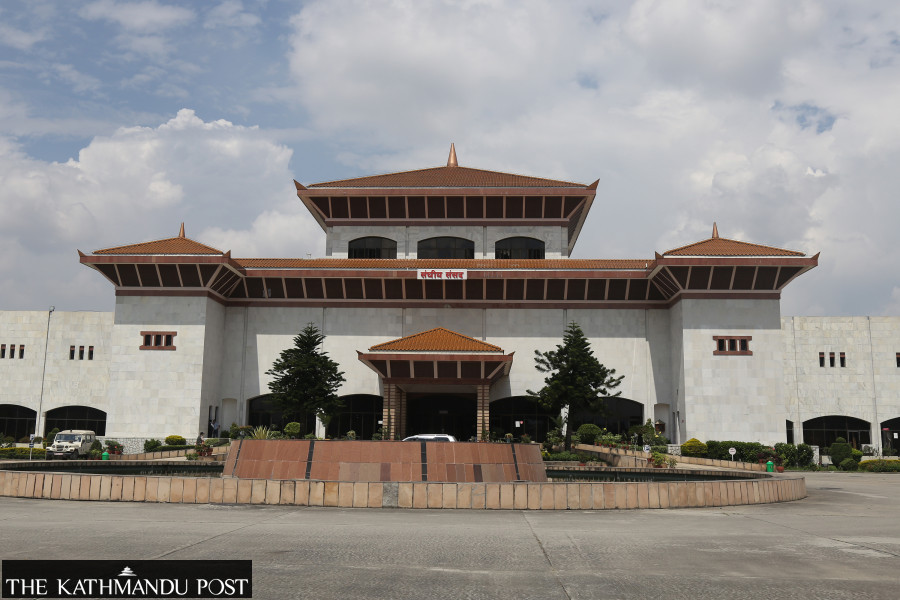Editorial
Not your time
The public wants the defeated candidates to stay out of Parliament for the next five years.
Less than two months after the November 20 polls, a few influential leaders from various political parties, who were beaten in the elections, are already manoeuvring to be parliamentarians. They appear to be having a hard time accepting the public’s mandate and believe they must somehow—anyhow—get back to power. Upendra Yadav, chair of the Janata Samajbadi Party, and Shankar Pokharel, general secretary of the CPN-UML, are the most eager of the lot. The two have already started political exercises to enter the Parliament, which, they hope, will be their ticket to important Cabinet berths; the new constitution allows only lawmakers to be ministers and the prime minister.
Their modus operandi is rather dubious: To somehow get certain directly-elected lawmakers elected President or Vice-president so that the constituencies they were elected from fall vacant and these leaders can then contest by-elections from there to get to the Parliament. Yadav, who has a strong grip in the RSP, wants to first secure the post of Vice-president for his party in the power-sharing deal with the ruling alliance and then nominate the party's Ram Sahaya Prasad Yadav, elected from Bara-2, to the post. He then plans on being elected to the Parliament from Bara-2 through a by-election.
Pokharel, who is among the most trusted leaders of UML chair KP Sharma Oli, is working on a similar plan. He wants CPN (Maoist Centre) chair Pushpa Kamal Dahal to promote Maoist leader Rekha Sharma to the post of vice-president, and has been trying to convince her to vacate her constituency, Dang-2. Notably, Sharma had beaten Pokharel in the same constituency. Even after the public’s rejection, Pokharel is not ready to wait. This practice of the leaders rejected by the voters finding a way into the House through the back door is, frankly, undemocratic. For the functioning of an electoral democracy, those who lose an election must accept the public verdict and stay out of power until the next elections.
Earlier, a leader could contest from two constituencies. But then the provision was widely exploited by top leaders. The arrangement also added to the state’s burdens, even as there was no substantive benefit for the larger society. Later, the provision was rightly scrapped. Separately, the practice of powerful leaders misusing proportional representation to elect their near and dear ones has made the system unpopular even though it was adopted with the intent of making Nepal's politics and other state organs inclusive, and a true reflection of our country's diversity. Abusing authority and misusing constitutional or legal loopholes for personal gains has thus become a norm.
The tendency of reaching the Parliament and subsequently the Cabinet by hook or by crook must be discouraged, in the political parties and in the polity at large. Such a practice dissuades new faces from entering politics as they see that the whole system is rigged in favour of certain powerful leaders. Perhaps they don’t realise it, but in the long run trying to overturn the public verdict will contribute to the unpopularity of even the leaders in question. How can people trust with their votes the candidates who refuse to play by the rules of electoral politics?




 18.12°C Kathmandu
18.12°C Kathmandu














